Erin Lawrimore has served as University Archivist at the University of North Carolina at Greensboro since 2011. In this role, she is responsible for collecting, preserving, and promoting the history of UNCG from its creation as the State Normal and Industrial School in 1891 through today. Her research interests include community-engaged archival practice, American archives history and development, and the history of beer and brewing in North Carolina.
Erin holds a bachelor’s degree in English from Duke and a masters of science in information studies from the University of Texas at Austin. She previously worked as Assistant Head and Curator of the Special Collections Research Center at North Carolina State University, and as Coordinator for Acquisitions and Processing at the University of Tennessee Special Collections Library.
Erin is part of the organizing committee at UNC Greensboro working with DHC-NC on the Spring 2020 Digital Humanities Collaborative Institute (DHCI) that will be held at the university on March 5 & 6, 2020. For more information about the DHCI at UNCG, please see the Institute page.
What role does community engagement play in your work as an archivist, and how does that relate to digital humanities?
I feel that my work as an archivist has always had a community-engaged focus, even if I didn’t have those particular words to describe it. I see archival practice as an area where the person or community being documented should be involved in determining how their story is preserved and made accessible. Archives are not neutral, just as the production of history is not neutral. Recognizing this and making a concerted effort to decenter the archives as institution is vital if we wish to have a historical record that is not simply focused on the powerful.
I am greatly inspired by the work of other colleagues who have done brilliant work in this area. For example, archivist Bergis Jules and the team who have developed and managed the project Documenting the Now have engaged with activists to develop tools and guidelines for ethical collection and preservation of social media content. They’ve not only created a suite of tools to help archivists and researchers gather data, but they have centered the concerns of the communities being documented and forced the information gatherers to critically think about the potential damage that could come from unfettered scraping and use of social media data. This project along with others like Project STAND and the South Asian American Digital Archive model a community-engaged archival practice that is necessary for archives to truly be representative and inclusive.
How did you become involved with community-engaged scholarship at UNC Greensboro?
Here at UNC Greensboro, I’ve joined campus-wide conversations about effective methods and best practices for centering these communities and their needs in my work. UNCG’s Institute for Community and Economic Engagement is a fantastic resource, and the Institute’s leaders do a great job of facilitating conversations across campus and outside of campus. I’ve learned a lot about the ways community engagement practices are employed both inside and outside of the humanities, and this has greatly influenced how I do my work, both as an archivist and as a scholar.
Can you tell us a little bit about your Well Crafted NC project and the role of community engagement in this work?
Well Crafted NC is a research project focused on documenting the history of beer and brewing in North Carolina. The project is led by three people based in UNCG’s University Libraries – Richard Cox, David Gwynn, and me. We combine historical research with oral history interviews and collection of archival materials from current brewers and brewery owners to explore the role that beer has played in North Carolina’s history.
Currently, we are in the second year of a three-year Community-Engaged Pathways and Partnerships (P2) grant from UNCG’s Institute of Community and Economic Engagement. In this grant, we’re collaborating with another faculty member in UNCG’s Bryan School of Business and Economics and with the Triad Brewers Alliance (our non-profit, regional craft brewers alliance) to preserve the history of TBA members, assist them in developing their stories for their own business and marketing needs, and build a regional marketing plan that draws on those individual stories to promote the Triad as a craft beer destination.
Well Crafted NC has been a project with a high degree of community engagement from its beginning in 2017. We have collaborated with the North Carolina Craft Brewers Guild on educational outreach activities for their members and for the general public. A partnership with North Carolina chapters of the Pink Boots Society, an organization dedicated to providing education and training for women in the beer industry, led to a series of oral history interviews with women brewers and brewery owners as well as an exhibit at the group’s annual Biere de Femme festival. Working with these types of organizations has been essential in guiding our work and ensuring that the project both benefits us as researchers as well as the community we are researching.
Is there anything you would like to say about the upcoming Digital Humanities Collaborative Institute at UNCG?
UNCG a history of community engagement that dates back to our founding, when students adopted the word “Service” as the official school motto. Today, community engagement is deeply embedded in all of the work we do. We’re one of a small number of American universities to be classified by the Carnegie Foundation as both a Doctoral University with High Research Activity and as a Community-Engaged Institution with “deep engagement” at local, regional, national, and global levels. I’m excited for the opportunity to share the work we’re doing at UNCG, and to learn from others who will be coming to the Institute.

